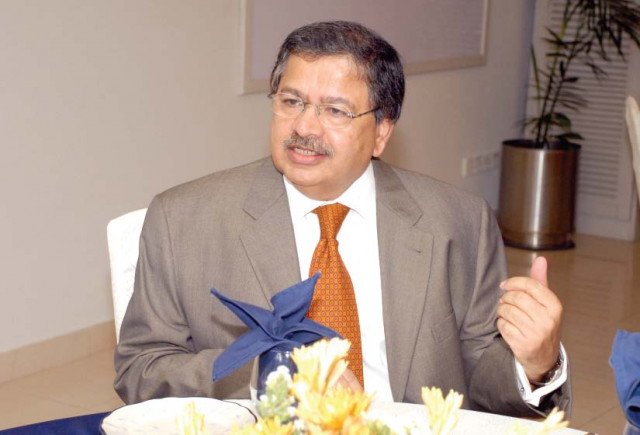Pakistan cheapest destination for medicines
CEO of Getz Pharmaceutical said the biggest hurdle for the pharmaceutical sector was inconsistent government policies.

However, he added that Pakistan was the cheapest destination for medicines.
Talking about the challenges facing Pakistan’s pharmaceutical industry, he said that when India and China were striving to develop their pharmaceutical industry in the ‘70s and ‘80s, we were busy fighting the Afghan war.
Later, in the Musharraf era, we faltered again and failed to develop large industrial units partly because of the electricity crisis, he continued. Today, India is exporting pharmaceutical products worth of $20 billion on the back of good planning in last two three decades, he stated.
Pakistan’s pharmaceutical industry exports could be a lot better as the country’s current $100 million pharmaceutical exports are too little considering the large population of Pakistan. He pointed out that a country like Jordan with a population of six million and similar conditions was now exporting one billion dollars worth of pharmaceutical products and questioned why Pakistan could not do the same.
Although satisfied with the local workforce, Mahmood said research in Pakistan is comparatively limited, partly because research is not required in many cases. There is a lot of basic research, he added, but we need research for new molecules that is not advancing according to our needs.
He said that the biggest hurdle for the pharmaceutical sector was inconsistent government policies. Apart from that, the absence of law, order and basic infrastructure are factors that cripple sector growth.
“Customers feel insecure visiting Pakistan for factory and product inspections which results in losses,” he stressed.
When questioned on the Pakistani consumers’ general perception that medicines are too expensive when compared to India, Mahmood replied: “I don’t think that this perception is true. Contrary to this, I would say that Pakistan is the cheapest destination on earth for medicines”.
Europe and United States also import around 70 per cent of their raw material from China and India, said Mahmood, when questioned about the usage of low quality raw materials in local pharmaceutical companies. “Considering the size of the Chinese markets, the imported goods may or may not be of same quality and it would be wrong to ban Chinese raw material in the country.”
“I am not satisfied with the system.
The government needs to improve legislation and it should start a crackdown on the manufacturers of counterfeit medicines,” said Mahmood, when asked if he was satisfied with the government’s system to counter fake medicines.
“I don’t think the minister’s claim has weight as the percentage is not that high, especially as I believe that licenced pharmaceutical companies are not engaged in illegal practices,” he said, referring to the federal interior minister’s comment that roughly 50 per cent of the locally manufactured drugs of Pakistan are counterfeit. Mahmood, whose company exports 40 per cent of the total pharmaceutical exports of the country, explained that the minister’s comments had hurt the interests of local pharmaceutical manufacturers.
With its only manufacturing unit in Karachi, Getz Pharmaceutical exports its products to 20 countries. Following the ever increasing registration of its products in foreign countries, the company is all set to increase its exports.
“After achieving a marked presence in Asia we now aim to further expand the list of our exporting countries other than the regional countries,” he concluded.
Published in The Express Tribune, August 18th, 2010.



















COMMENTS
Comments are moderated and generally will be posted if they are on-topic and not abusive.
For more information, please see our Comments FAQ